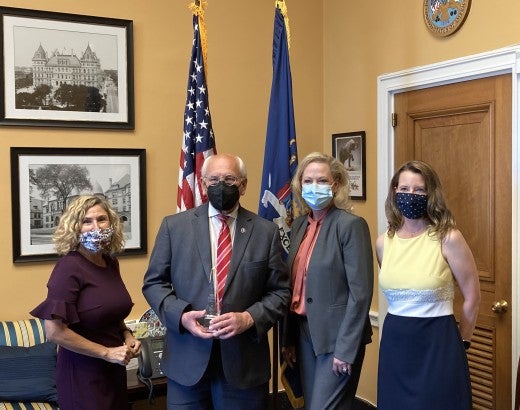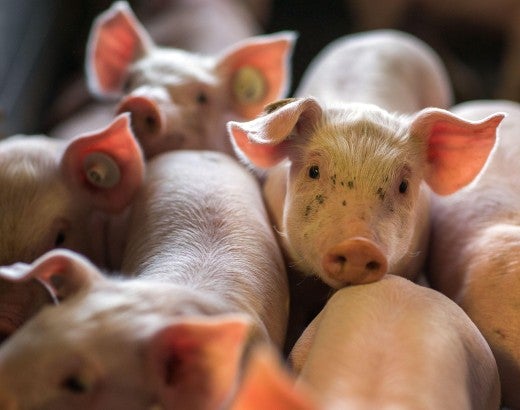At the Golden Globes this Sunday, Hollywood’s A-list celebrities will sit down to an all-plant-based dinner. And while no one knows yet who will take home the evening’s top awards, the menu—chilled golden beet soup, king oyster mushrooms scallops and wild mushroom risotto, and roasted baby purple and green Brussels sprouts and carrots—sounds like a certain winner.
The announcement from the Hollywood Foreign Press Association yesterday made headlines and drew accolades around the world. It reminded us of just how much progress has been made in the movement toward plant-based eating in the years since environmental groups and animal protection organizations like ours began to push for such change, recognizing the environmental impact of meat-heavy diets, as well as the suffering they cause animals.
Making the announcement, HFPA president Lorenzo Soria said he hopes to get the Golden Globes to send a signal and draw attention to the issue about climate change. “The food we eat, the way we grow the food we eat, the way we dispose of the food is one of the large contributors to the climate crisis,” he said.
Soria is right: meat-heavy diets are disastrous for the planet. Producing just one pound of meat means feeding an animal up to fifteen pounds of grains and other crops. That means growing massive amounts of feed, which either takes cropland away from growing food for direct human consumption or leads to the destruction of forests to make room for farmland, and the squandering of huge amounts of fresh water. Those crops are then processed and fed to tens of billions of farm animals used each year in the global agricultural system.
What’s more, the livestock sector is also a leading greenhouse gas emitter, estimated to be comparable to the entire global transport sector, according to the United Nations Food and Agriculture Organization.
Animals raised for food in large industrialized operations, called factory farms, also endure immense pain and suffering. Egg-laying hens are packed into battery cages where they can't even spread their wings; baby calves are taken from their mothers and confined in pens so small they can barely move; and pigs are locked in gestation crates the width and length of their bodies, unable to even turn around.
That’s why the Humane Society of the United States and Humane Society International have pushed for more plant-based consumption, and helped the world’s largest food service companies, restaurant chains and grocery stores to develop, implement and promote vegan options. We’ve trained more than 10,000 food service industry professionals in the art of preparing plant-based food and moved nearly 700 school districts, hospital systems and other major food users around the world toward sound and effective policies designed to decrease their meat footprint.
In 2019, the plant-based movement gained extraordinary momentum. Burger King added a plant-based Impossible Whopper to its menu, fueling the company’s best fiscal quarter in four years. Carl’s Jr. added a Beyond Burger to its menu nationwide, and even advertised it during the Super Bowl. KFC tested vegan chicken in Atlanta, selling out of the plant-based nuggets in just five hours.
Like the Golden Globes, we’ve also played a role in helping the stars align around eating less meat for the planet. At our own galas and conferences, the food is always 100% plant-based, getting rave reviews from attendees for the menu items created by our professionally trained culinary staff.
It's clear that our culture, and the fare at our dinner tables, is changing at an astounding rate, as more people realize the impact they can have—on the planet, their health, and for animals—by eating plant-based food. With billions of animals still suffering on factory farms, we have a long way to go. But this weekend—as millions of us sit down to watch the awards ceremony and be entertained by the host, the amazing Ricky Gervais who is a known supporter of animals and a friend of the HSUS and HSI—we can be grateful for the amazing progress made for farm animals, even as we look forward to more in years to come.



